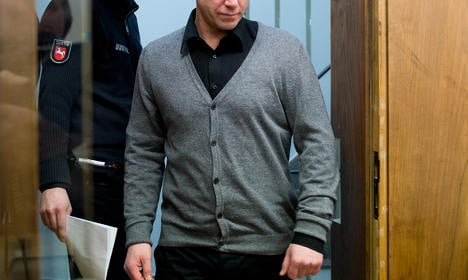P { margin-bottom: 0.21cm; }
“You cannot kill someone more gruesomely,” judge Wolfgang Rosenbusch said after sentencing 33-year-old Björn F. to life in prison for murder and sexual assault.
The court heard how the man spent six hours torturing his 23-year-old girlfriend until she died – apparently driven by rage after forcing the young woman into prostitution but then being unable to control his jealousy.
Björn F. filmed the attack, which took place in Barsinghausen near Hannover, on his mobile phone. In the footage it shows how he hit her 263 times in just 11 minutes. He also took more than 200 photos. “She did not stand a chance,” said Rosenbusch.
Despite testing positive for being under the influence of alcohol and cocaine, the court decided he was of sound mind when he killed the woman.
Witnesses in court told the judge how they knew Björn F., a skilled labourer, had abused a number of his past girlfriends.
The defence called for a nine-year sentence with rehabilitation for their defendant’s drug addiction. But instead he will go to prison for life. His case will be reviewed after 21 years.
SEE ALSO: Child murderer, 46, jailed as a minor




 Please whitelist us to continue reading.
Please whitelist us to continue reading.
Member comments